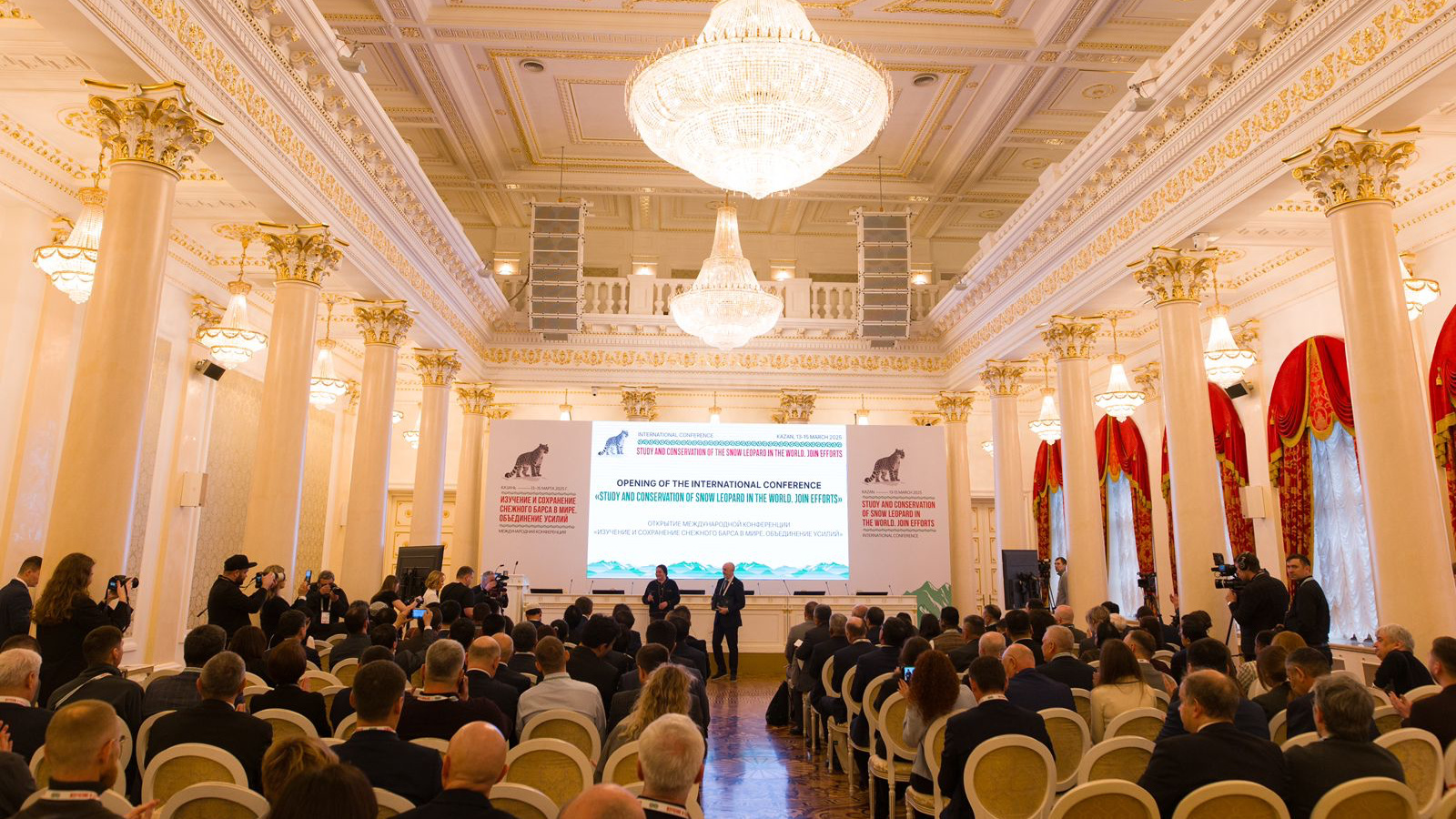A conference on the conservation of the snow leopard in the world has begun in Kazan

International Conference "Study and conservation of the snow leopard in the world. Joining Forces" began in Kazan on March 14. The organizers of the event are The Government of the Republic of Tatarstan, the Interregional Association "Center for the Study and Conservation of the Snow Leopard "Irbis" and the Ministry of Natural Resources of Russia.
The uniqueness of the Kazan conference lies in the fact that for the first time all 12 countries of the snow leopard range have gathered in Russia in order to join forces and preserve this species for future generations. Representatives of the scientific community from Afghanistan, Bhutan, China, India, Kazakhstan, Kyrgyzstan, Mongolia, Nepal, Pakistan, Russia, Tajikistan and Uzbekistan came to Kazan.
"The dialogue between government, business, society and science always leads to constructive work, and at this event all work will be aimed at preserving the snow leopard. Tatarstan was the initiator of the inclusion of the snow leopard conservation program in the federal biodiversity conservation program within the framework of the national Ecology project. The snow leopard is a symbol of our republic, it is also the totem animal of all Turkic–speaking peoples, and our task, as descendants, is to preserve it," said Alexander Shadrikov, Minister of Ecology and Natural Resources of the Republic of Tatarstan.
"The snow leopard unites the countries of the Asian region – the BRICS and SCO countries. As part of this conference, we plan to adopt the Kazan Declaration, which will unite efforts to preserve this rarest and most beautiful species of animal. Currently, the snow leopard lives only in several regions of Russia – Gorny Altai, Buryatia, and the Krasnoyarsk Territory. We need to do everything to have more of it in the country," said the Chairman of the Supervisory Board of the Interregional Association "Center for the Study and Conservation of the Snow Leopard "Irbis" Ali Uzdenov.
"The snow leopard has become the quintessence of environmental diplomacy. This rare cat allows us to connect countries, cities, and heads of state and reach the decisions that are necessary for all parties," said the Director of the Department of State Policy and Regulation in the field of development of specially Protected Natural Territoriesminprirody of Russia Irina Makanova.
The snow leopard is the rarest animal that lives in the mountains. Human pressure, lack of food supply, poaching, mining and a number of other factors have significantly reduced the number of snow leopards. 10 years ago, according to experts, only about 10-15 individuals lived in Russia. To date, according to the results of the first all-Russian accounting of the snow leopard, conducted in 2024 by the Irbis Association with the support of the Ministry of Natural Resources and Ecology of the Russian Federation, scientists have recorded 87 leopards in the country. A lot of work is being done with the local population to create a positive image of the snow leopard in the regions of its conservation and restoration.
The conference in Kazan will continue on March 14-15, with 180 participants from 12 countries and 11 regions of Russia – Moscow, the Altai Republic, the Republic of Tyva, the Irkutsk Region, the Perm Territory, the Krasnoyarsk Territory, the Republic of Buryatia, the Republic of Khakassia, the Novosibirsk Region, the Rostov Region, and the Republic of Tatarstan.